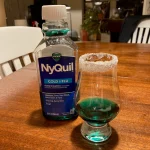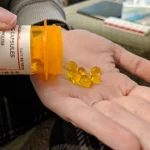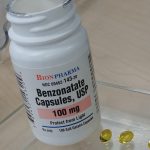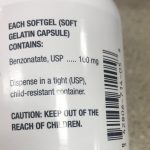What Drugs And Food Should Not Be Taken With Benzonatate?
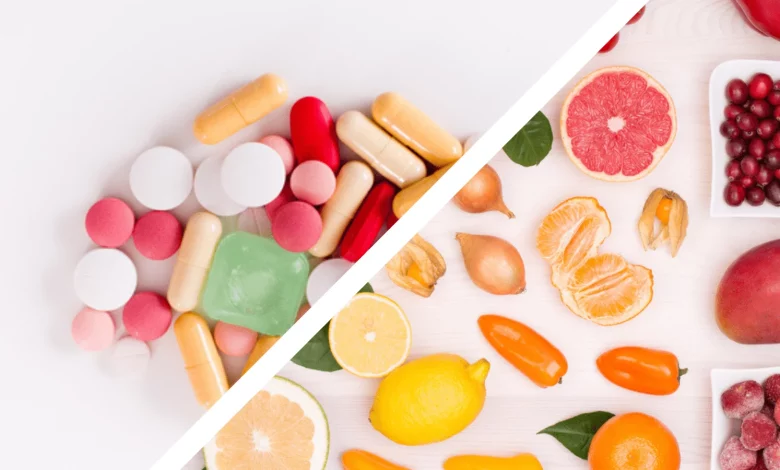
Cough medications can interact with other drugs and food in various ways, which may affect their safety and effectiveness. As such, it’s important to take precautions and be cautious when using these medications. Reading the instructions on the label of any medication is crucial for taking it safely and effectively. In the case of cough medications, it’s important to pay special attention to any potential interactions with other drugs or food.
In addition to reading the label, it’s also a good idea to consult your healthcare provider if you have any questions or concerns about how to take your cough medication safely. Your healthcare provider can help you understand any potential interactions and adjust your medication if necessary. In this article, we shall be taking a good look at what drugs and food should not be taken with benzonatate.
What is benzonatate?
Benzonatate is a medication used for the treatment of cough. It is a non-narcotic cough suppressant that works by numbing the throat and lungs, which helps to decrease the urge to cough. In this article, we will explore benzonatate in detail, including its uses, mechanism of action, pharmacokinetics, side effects, drug interactions, and precautions.
Benzonatate is used for the symptomatic relief of cough. It is particularly effective in the treatment of cough caused by upper respiratory tract infections, such as the common cold or bronchitis. It is also used in the treatment of other respiratory conditions, such as asthma and chronic obstructive pulmonary disease (COPD).
How it works
The exact mechanism of action of benzonatate is not fully understood. It is believed to work by binding to receptors in the respiratory tract, which leads to a numbing effect. This numbing effect reduces the cough reflex and decreases the urge to cough.
Benzonatate is rapidly absorbed from the gastrointestinal tract, with peak plasma concentrations occurring within 1 to 2 hours of ingestion. The medication is extensively metabolized in the liver, and the metabolites are excreted in the urine. The elimination half-life of benzonatate is approximately 8 hours.
How is Benzonatate Taken?
Benzonatate is a medication used for the treatment of cough. It comes in the form of a capsule and is taken orally. In this article, we will explore how benzonatate is taken in full detail, including dosage, administration, and precautions.
The recommended dosage of benzonatate varies depending on the age and weight of the patient. For adults and children over 10 years of age, the usual dose is 100 mg to 200 mg three times a day as needed. For children aged 2 to 10 years, the dose is based on body weight and ranges from 1 mg/kg to 2 mg/kg three times a day. The maximum daily dose should not exceed 600 mg.
Benzonatate capsules should be taken by mouth with or without food. The capsules should be swallowed whole and not crushed, chewed, or dissolved in the mouth. The medication should be taken as directed by the healthcare provider. If a dose is missed, it should be taken as soon as possible, unless it is almost time for the next scheduled dose. In this case, the missed dose should be skipped, and the regular dosing schedule should be resumed.
Benzonatate should be used with caution in patients with a history of respiratory depression, asthma, or other respiratory conditions. The medication should not be used in patients with a hypersensitivity to benzonatate or any of its components. It should also be used with caution in patients who are pregnant or breastfeeding.
What Drugs And Food Should Not Be Taken With Benzonatate?
It is important to know what drugs and foods should not be taken with benzonatate, as interactions can affect the effectiveness and safety of the medication. In this section of the article, we will explore drugs and foods that should not be taken with benzonatate in detail.
Drugs that should not be taken with benzonatate:
1. Narcotic pain medications: Narcotic pain medications, such as codeine, hydrocodone, and oxycodone, can increase the risk of respiratory depression when taken with benzonatate. Patients taking benzonatate should avoid using narcotic pain medications or should use them only under the close supervision of a healthcare provider.
2. Sedatives: Sedatives, such as benzodiazepines and barbiturates, can increase the sedative effect of benzonatate and increase the risk of respiratory depression. Patients taking benzonatate should avoid using sedatives, or should use them only under the close supervision of a healthcare provider.
3. Antihistamines: Antihistamines, such as diphenhydramine and cetirizine, can increase the sedative effect of benzonatate and increase the risk of respiratory depression. Patients taking benzonatate should avoid using antihistamines, or should use them only under the close supervision of a healthcare provider.
4. Monoamine oxidase inhibitors (MAOIs): MAOIs, such as phenelzine and tranylcypromine, can increase the risk of serotonin syndrome when taken with benzonatate. Patients taking MAOIs should avoid using benzonatate, or should use it only under the close supervision of a healthcare provider.
5. Tricyclic antidepressants (TCAs): TCAs, such as amitriptyline and nortriptyline, can increase the risk of serotonin syndrome when taken with benzonatate. Patients taking TCAs should avoid using benzonatate, or should use it only under the close supervision of a healthcare provider.
6. Antidepressants: Antidepressants, such as fluoxetine and sertraline, can increase the risk of serotonin syndrome when taken with benzonatate. Patients taking antidepressants should avoid using benzonatate, or should use it only under the close supervision of a healthcare provider.
7. Antipsychotics: Antipsychotics, such as haloperidol and risperidone, can increase the risk of respiratory depression when taken with benzonatate. Patients taking antipsychotics should avoid using benzonatate, or should use it only under the close supervision of a healthcare provider.
Foods that should not be taken with benzonatate:
1. Alcohol: Alcohol can increase the sedative effect of benzonatate and increase the risk of respiratory depression. Patients taking benzonatate should avoid alcohol or should consume it only in moderation.
2. Grapefruit juice: Grapefruit juice can increase the absorption of benzonatate and increase the risk of side effects. Patients taking benzonatate should avoid consuming grapefruit juice or should consume it only in moderation.
3. Caffeine: Caffeine can increase the stimulant effect of benzonatate and decrease its effectiveness. Patients taking benzonatate should avoid consuming large amounts of caffeine or should consume it only in moderation.
4. High-fat foods: High-fat foods can delay the absorption of benzonatate and decrease its effectiveness. Patients taking benzonatate should avoid consuming high-fat foods or should consume them only in moderation.
Conclusion
Benzonatate is a medication used for the treatment of cough. It is important to be aware of the drugs and foods that should not be taken with benzonatate, as interactions can affect the effectiveness and safety of the medication. Patients should always inform their healthcare provider of all medications they are taking, including prescription and over-the-counter drugs, supplements, and herbal products, before starting treatment with benzonatate.
Additionally, patients should always follow the dosing instructions provided by their healthcare provider or as directed on the medication label. Taking more than the recommended dose of benzonatate can increase the risk of side effects and respiratory depression.
If a patient experiences any adverse reactions while taking benzonatate, such as difficulty breathing, chest pain, or severe dizziness, they should seek medical attention immediately. It is also important to note that benzonatate should not be used for more than 7 days, unless directed by a healthcare provider.
In summary, the following drugs and foods should not be taken with benzonatate: narcotic pain medications, sedatives, antihistamines, MAOIs, TCAs, antidepressants, and antipsychotics. Alcohol, grapefruit juice, caffeine, and high-fat foods should also be consumed only in moderation or avoided altogether while taking benzonatate. Patients should always consult their healthcare provider before taking any new medications or making changes to their diet while taking benzonatate.

